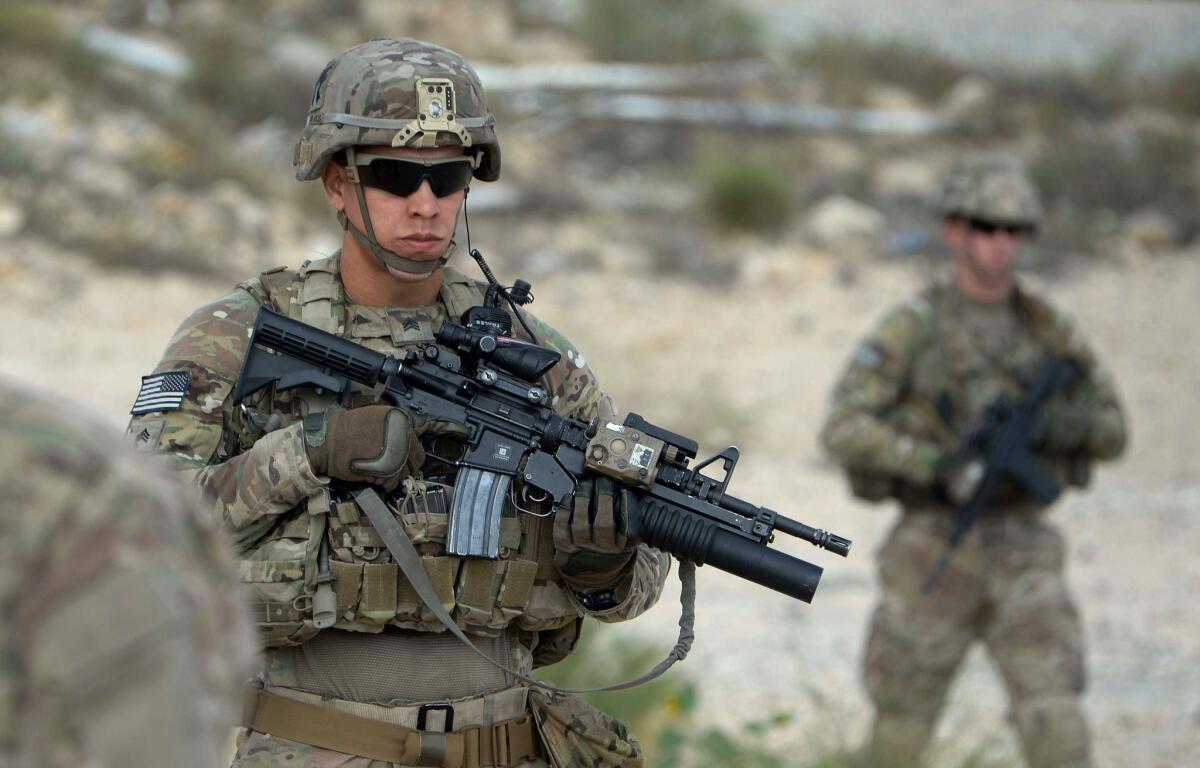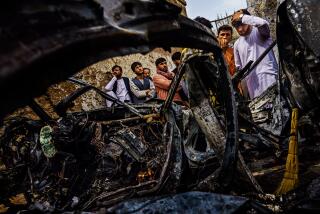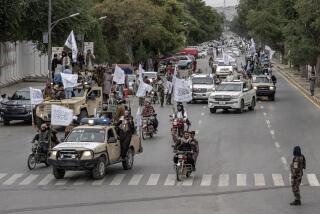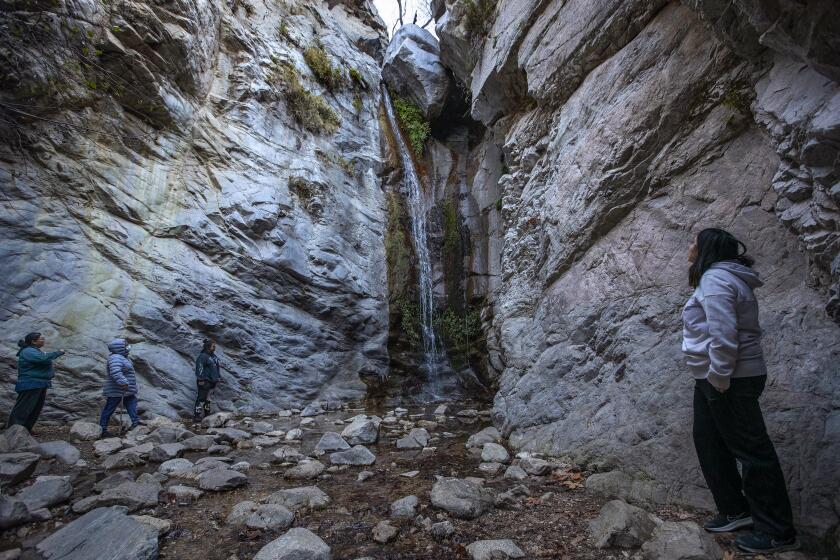Editorial: Will we ever get out of Afghanistan?

US soldiers at an Afghan National Army base in Khogyani district on August 30.
Try as he might to spin it as a sign of progress, President Obama’s announcement that he will leave thousands of U.S. troops in Afghanistan when he leaves office shows that he was overly optimistic about the Afghans’ ability to defend themselves against the Taliban, the remnants of Al Qaeda and other insurgents. And although Obama said Thursday that he was opposed to “endless war,” Americans can be excused for wondering whether the U.S. military presence in Afghanistan that began in 2001 will ever end.
That doesn’t mean the president was wrong to heed the advice of military commanders and scuttle his earlier plan, which would have shrunk that presence to about 1,000 troops based at the U.S. Embassy in Kabul by the end of 2016. That drawdown was arguably unrealistic at the time it was unveiled, and as the president noted, the Taliban has made gains in recent months while Islamic State has established a foothold. The bottom line, Obama said, is that “in key areas of the country, the security situation is still very fragile, and in some places there is risk of deterioration.”
In response to those developments, the U.S. will maintain its current posture of 9,800 troops in Afghanistan through most of 2016, reducing that number to 5,500 by early 2017, with troops stationed at several bases around the country, including Bagram, Jalalabad and Kandahar.
As has been true since the end of U.S. combat operations at the end of last year, U.S. troops will confine themselves to training Afghan forces and engaging in counter-terrorism operations — activities that aren’t risk-free by any means but are unlikely to result in significant U.S. casualties. (As Obama noted Thursday, 25 Americans have died in Afghanistan this year, compared with nearly 500 in 2010.) These limits make it easier to accept Obama’s contention that thousands of U.S. trainers and advisors need to remain in Afghanistan to protect America’s stake in the country and assist its struggling government.
As defensible as this decision may be, however, it revives the question of whether the U.S. is holding itself hostage to improvements in security and self-governance that the leaders of Afghanistan never seem to achieve. In his speech, Obama noted that “every single day, Afghan forces are out there fighting and dying to protect their country,” and that a new national unity government is tackling corruption and strengthening civil society. Yet, by Obama’s own admission, those improvements haven’t made Afghanistan self-sufficient.
In March, after Obama announced that he would alter an earlier timetable for the withdrawal of U.S. forces, we asked to hear more from the president “about how he intends to ensure that the U.S. is not involved in Afghanistan in perpetuity.” After Thursday’s announcement, we’re still waiting.
Follow the Opinion section on Twitter @latimesopinion and Facebook
More to Read
A cure for the common opinion
Get thought-provoking perspectives with our weekly newsletter.
You may occasionally receive promotional content from the Los Angeles Times.






